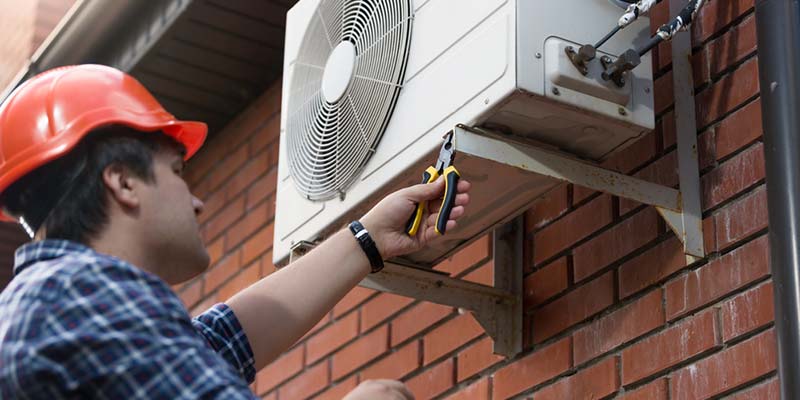As a homeowner, ensuring your HVAC system operates efficiently is essential for ensuring a cozy living environment, especially with shifting seasons. The heating, ventilation, and air conditioning system, often known as HVAC, serves a crucial role in regulating indoor temperatures, offering fresh air, and maintaining proper humidity levels. Nonetheless, navigating the challenges of these systems can be overwhelming, particularly for those who are new to owning a home or are not familiar with the operation of these systems.
In this article, we'll discuss the top ten HVAC maintenance tips that every homeowner should know. From grasping the basics of how your HVAC system works to identifying common problems and knowing when to call in a professional, these tips will empower you to take charge of your home's heating and cooling needs. With the right knowledge and practices, you can prolong the life of your system, improve indoor air quality, and in the end save money on energy bills. We will delve into the essential maintenance strategies that will ensure your HVAC system running smoothly year-round.
Comprehending HVAC Systems
HVAC stands for heating, ventilation, and air conditioning. It denotes the technology that provides indoor environmental comfort through thermostatic regulation, moisture control, and atmospheric quality control. A efficiently configured HVAC system holds a vital role in preserving a pleasant and healthy living space, making it an essential component of today's homes.
Heating units are responsible for warming the interior of a structure. Common types include heaters, heat exchangers, and water heaters. Cooling units, usually typified by air conditioning units, work to cool the indoor air, delivering comfort during sweltering months. Air circulation, often involving the circulation of outside air, is vital for upholding indoor air quality, helping to eliminate pollutants and maintain a fresh atmosphere.
Understanding how these systems work together is key to efficient operation. The interplay between warmth and cooling controls indoor temperatures, while adequate ventilation enhances air quality. Familiarizing yourself with your HVAC system's parts and roles can enable you to take informed decisions about upkeep, improvements, and energy-efficient practices.
Key HVAC Maintenance Tips
Consistent service of your HVAC unit is vital for ensuring its performance and longevity. One of the most straightforward yet most effective suggestions is to replace your air filter every one and 3 months, based on how often you use it and the kind of air filter. Dirty filters can limit airflow and make your system to operate more leading to elevated energy bills and potential damage. Keeping a consistent schedule for changing air filters not only improves air quality and also enhances the total functionality of your HVAC unit.
A further vital maintenance tip is to schedule yearly professional inspections and tune-ups. A qualified technician can find and address issues before they become serious into costly repairs. At these inspections, the technician will maintain the coils, check refrigerant levels, and ensure that all components are functioning properly. This preventative approach not just helps maintain performance but also extends the life of your HVAC system, keeping you costs in the future.
Finally, making sure that your external unit is free of debris is crucial for optimal efficiency. Consistently check for leaves, grass, and additional obstructions that could restrict airflow. Maintaining useful link around your outdoor condenser unit clean allows for better heat exchange, boosting efficiency. Additionally, think about covering the unit during severe weather conditions to protect it from possible damage and ensure its functionality when the season shifts.
Efficiency of Energy and Savings on Costs
Improving the energy efficiency of your HVAC system can lead to significant cost savings on your utility bills. Regular maintenance, such as changing air filters and cleaning ductwork, guarantees that your system operates effectively, reducing the workload on your HVAC units. By making simple adjustments, like sealing leaks around windows and doors, you can also prevent treated air from leaking out, which helps your HVAC system run more efficiently and reduces costs.
Investing a advanced thermostat can further enhance energy efficiency. These devices allow you to program heating and cooling timings according to your lifestyle, ensuring that energy is not wasted when you are not present. Additionally, many intelligent thermostats can monitor your energy usage and suggest adjustments to optimize efficiency. The reduction in costs from lower energy consumption can swiftly offset the initial cost of purchasing a smart thermostat.

Lastly, consider investing in energy-efficient HVAC systems that are engineered for optimal performance with minimal energy use. Look for systems certified by Energy Star, which follow strict efficiency guidelines. While the initial investment may be greater, the long-term savings achieved through lower energy bills and possible subsidies can make it worth the expense. Implementing these energy-efficient practices not only advantages your wallet but also helps to a greener environment.
